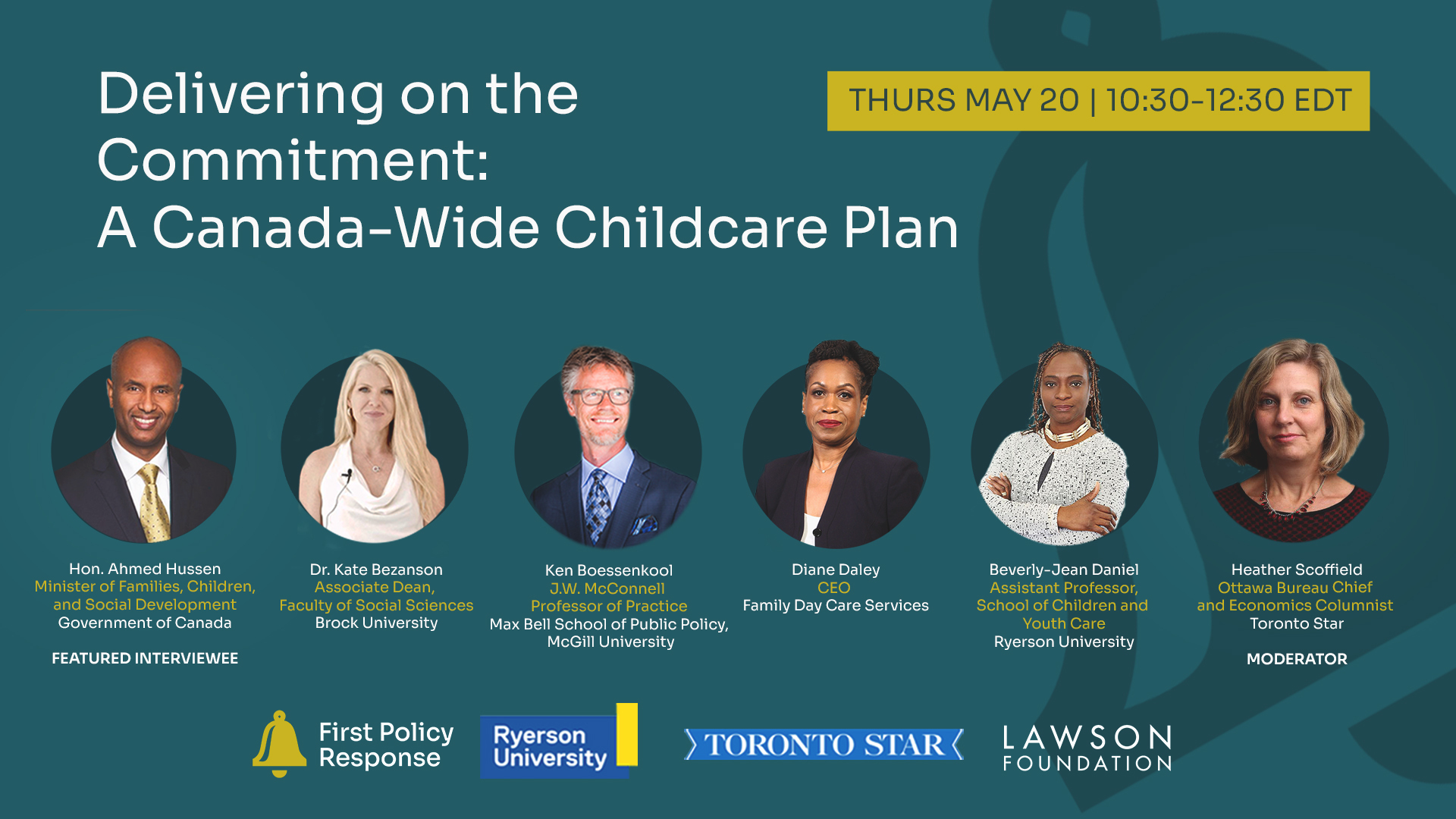Published as part of a collaboration between First Policy Response and the Toronto Star.
The 2021 federal budget says “the government’s goal is to ensure that all families have access to high-quality, affordable and flexible early learning and child care no matter where they live.” That should make every Canadian proud: the government understands that we all need to commit to a Canada-wide early learning and childcare plan so that our youngest residents, and those raising them, are well supported. And the best way to do this is to expand the community-based not-for-profit sector.
If we want to “ensure that all families have access” to childcare, we need to increase capacity in the system. A child benefit, which funds parents directly, doesn’t do that.
We also need to make childcare more affordable. In Ontario, childcare costs remain out of reach for most families. But I would suggest the cost is still artificially low, subsidized by the educators and providers who earn low wages and complete tasks after hours; by the parents who contribute in other ways besides their daily fees, such as buying supplies or volunteering their time and labour; and by failing to prioritize professional practices, such as programming time, that we know influence the quality of care.
A non-profit childcare centre is equally accountable to the families and children it serves, its broader community and its funders. This accountability is key to ensuring that the principles of quality, accessibility and affordability are equally prioritized.
We can address these goals of accessibility, affordability and quality by creating a national childcare system. Fortunately, in Ontario, we are starting with an existing structure of licensed childcare, on which we can build a broader system. Most of those childcares are non-profits, including facilities operated by municipalities, First Nations, not-for-profit organizations and private homes. The Ontario government’s Early Years and Child Care Annual Report for 2020 reported that 75 per cent of licensed childcare centres were not-for-profit and they provided 79 per cent of childcare spaces in the province.
A non-profit childcare centre is equally accountable to the families and children it serves, its broader community and its funders. This accountability is key to ensuring that the principles of quality, accessibility and affordability are equally prioritized.
Prioritizing not-for-profit delivery is how we can ensure that costs stay reasonable while ensuring quality; that the investment (as in infrastructure and real property) remains owned by the public; that there is licensed care located in all communities; and that a service’s ability to continue is not dependent on someone’s financial interest.
The community-based volunteer boards that oversee non-profit childcares have the expertise and enthusiasm to not only maintain what exists but to expand to meet unmet demand. They are already accountable to their local funders and know their communities; this ensures that we do not end up with a big-box model of early learning but instead one that is responsive and reflective of each unique neighbourhood.
The early-years sector has long understood that one size does not fit all families, which is why there are flexible options — not-for-profit licensed group care is available in various settings including workplaces, schools and homes. Importantly, with the type of joint federal and provincial commitment outlined in the budget, licensed home childcare can be strengthened to allow parents who work non-traditional hours the same opportunity for affordable, licensed childcare as parents who work 9 to 5.
The pandemic has clearly demonstrated that we rely on all Canadian workers, and when some have to step away from the workforce to care for their children, the effects are immediate and long-lasting — for their own families and also for our economy as a whole. Now we have an opportunity to not only recover but to embrace the lessons learned so we can do better.
As a sector, childcare providers are ready to roll up our sleeves and get to work. We are ready to share the breadth of our experience, the stories we hear from parents every day and the innovative solutions that we’ve already imagined. We hope that the Ontario government is ready to work alongside us and to listen; our children and families deserve nothing less.
Don't miss this event with Toronto Star
Event recap: Delivering on the Commitment: A Canada-wide childcare plan
May 20, 2021
Feature interview with The Honourable Ahmed Hussen followed by panel on how the federal government can move quickly to act on their pandemic childcare promise
Kim Hiscott is executive director of Andrew Fleck Children’s Services, a multi-service/multi-site not-for-profit agency that has been serving Ottawa’s families since 1911, and the chair of the Home Child Care Association of Ontario.



